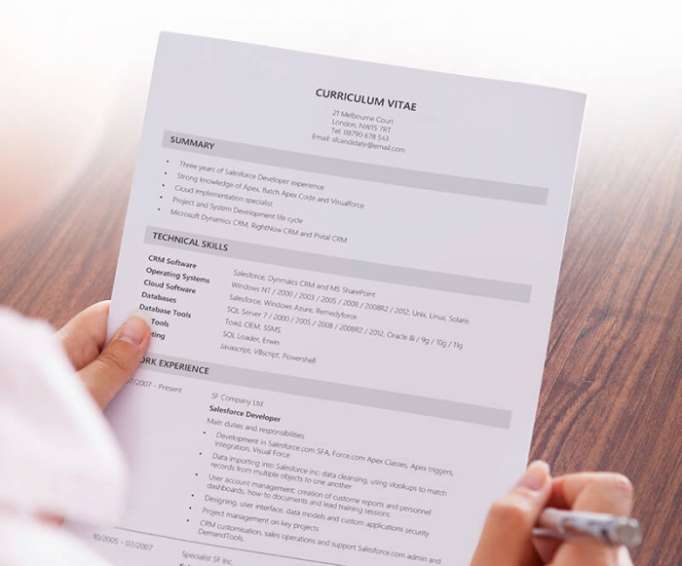The term résumé comes from the French résumer, meaning “to summarize,” while CV is an abbreviation for the Latin curriculum vitae, meaning “course of (one’s) life.” Hence, the biggest difference between a résumé and a CV is length. A résumé provides a concise overview of one’s education, work experience, credentials, and relevant skills, typically fit to a single page. A CV on the other hand often is multiple pages in length and presents a detailed summary of academic background and degrees, job experience, research, publications, presentations and lectures, honors, and other accomplishments.
Résumés and CVs also differ in that the former usually is tailored to the specific job of interest. A résumé generally features only the experience and skills that relate directly to the job description. A CV may be tailored to a minor extent, such as by highlighting specific skills relevant to the job, but otherwise requires little editing or fine-tuning from one job application to next. CVs simply grow over time as new publications, skills, and achievements are added to the document.
In addition, CVs generally are favored in academia and are used almost exclusively when applying for almost any job in a country other than Canada or the United States. In many cases, companies, schools, or other institutions that are recruiting new employees are clear about which type of document they prefer, eliminating much of the guesswork for applicants.
Read the original article on britannica.com.
















































